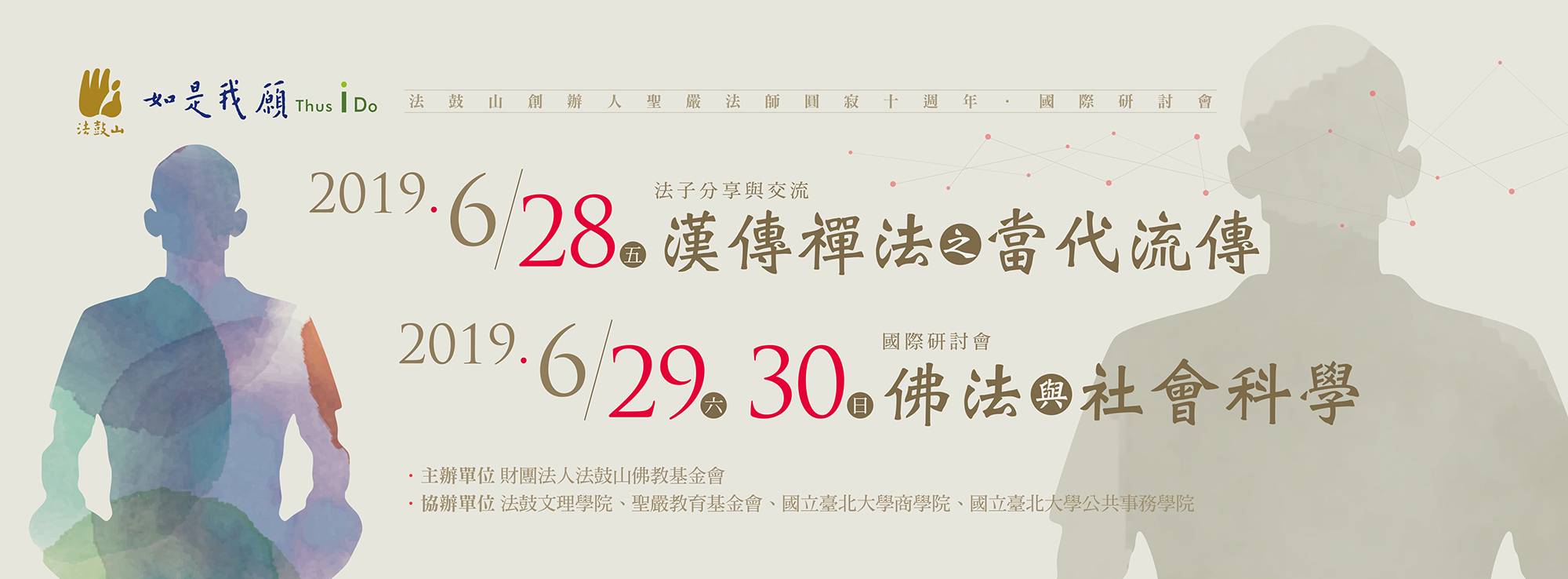宋代禪林住持的領眾學:論《禪林寶訓》中的人品評論
許文筆
有學者認為禪宗是佛教傳入中國後徹底漢化的宗派,受到儒家文化影響很深的宗派。這使得漢傳佛教的領眾修道的方式產生了很深的改變,從原來印度時期的六和僧團,即共議式的僧團管理,到唐代的百丈規約的「一日不作一日不食」的表率式管理,終成宋代禪林以住持為中心的家長式管理僧團,這樣的轉變正突顯了宋代禪宗面對當時政治社會的壓力,必須轉型方能對應時代的要求,這正呼應了每個時代都有每個僧團要對應的不同要求,僧團要安心辦道度眾修行,就必須在保有自己的核心傳承,隨順時代因緣的變化,方能成辦。
而《禪林寶訓》正是宋代禪宗的祖師們,為了因應朝庭政治的統治模式的變化及理學儒家的抬頭,如何在不影禪宗修道核心下,將儒家的相關思想引入叢林的管理與教育中,變是宋代禪宗祖師從契嵩禪師以下,對必須注意到的問題。
本書正是集二宋有名禪師之嘉言懿行,由期是對住持的要求及對弟子的培養等等問題,提出重要的原則性管理,對後代明清禪林有很深的影響,值得吾人深入探討,在鑒古知今的中,本篇在探討宋代禪宗住持的領眾學中,主要偏就《禪林寶訓》中有關禪師如何品評弟子與朋輩同儕的話語,來分析宋代禪師對人物的品評,與分析禪宗對人物的論述和佛教傳統中的論述有何不同。同時探討《禪林寶訓》如何論述與評論弘法者與叢林管理者,應具有何種德性?且期許善知識、好長老應具有的樣態。最後則略論禪宗為何產生這樣的人物評論現象的原因。以供現代寺院在管理就人才觀察時的參考。
關鍵字:禪林寶訓、人品評論、人才管理、宋代禪宗
The Abbots’ Leadership at the Chan Temples in Song Dynasty:
On the Character Comments in Treasured Instructions of Chan Temples
Wen-bi Xu
Some scholars believe that the sect of Chan undergoes the full Sinicization after Buddhism enters China and is deeply influenced by the Confucian culture. This has created a deep change in the way of leading the followers to practice Buddhist teachings in the Chinese Buddhism. From “six harmonies” in the India period, which is the monk management as a council, then the Pure Rules of Baizhan in Tang Dynasty, which is the exemplary management that “One day without work, one day without eating,” to finally the abbot-centered patriarchal management monk groups in the Chan temples in Song Dynasty, such transformation highlights that in the face of the political and social pressure at that time, the Chan temples in Song Dynasty has to transform in response to the demand of the time. This also corresponds to the concept that the monk groups in different times have to meet the different requirements. To successfully practice the Buddhist teachings among the public, they have to keep their own core heritage and follow the changes with the time.
Treasured Instructions of Chan Temples is about the issues how the Chan masters in Song Dynasty, including Master Qisong and those after him, introduce the Confucian thinking into their management and education without affecting the core of the Chan teachings in response to the changes in the political ruling of the court and the rise of Neo-Confucianism.
This book collects the great words and deeds of the famous Chan masters in both Song Dynasties, especially the proposition of the important management of principles in terms of the demands for abbots and the cultivation for disciples. It has a deep influence on Chan in Ming and Qing Dynasty and is worth our deep discussion. To know the present through the past experience, this paper discusses the Chan abbots’ leadership in Song Dynasty, focusing on the words of the Chan masters in commenting on the disciples and peers in Treasured Instructions of Chan Temples to analyze the Chan masters’ comments on people and the difference between Chan school’s discourse on people and the traditional Buddhist discourse. At the same time, this paper also discusses how Treasured Instructions of Chan Temples argues and comments on the virtues of the propagators and managers and what looks it expects for good knowledge and good seniors. Finally is the general argument about the reasons why the Chan school creates such comments on people for the reference of the modern temples in management and talent observation.
